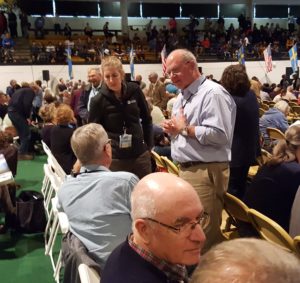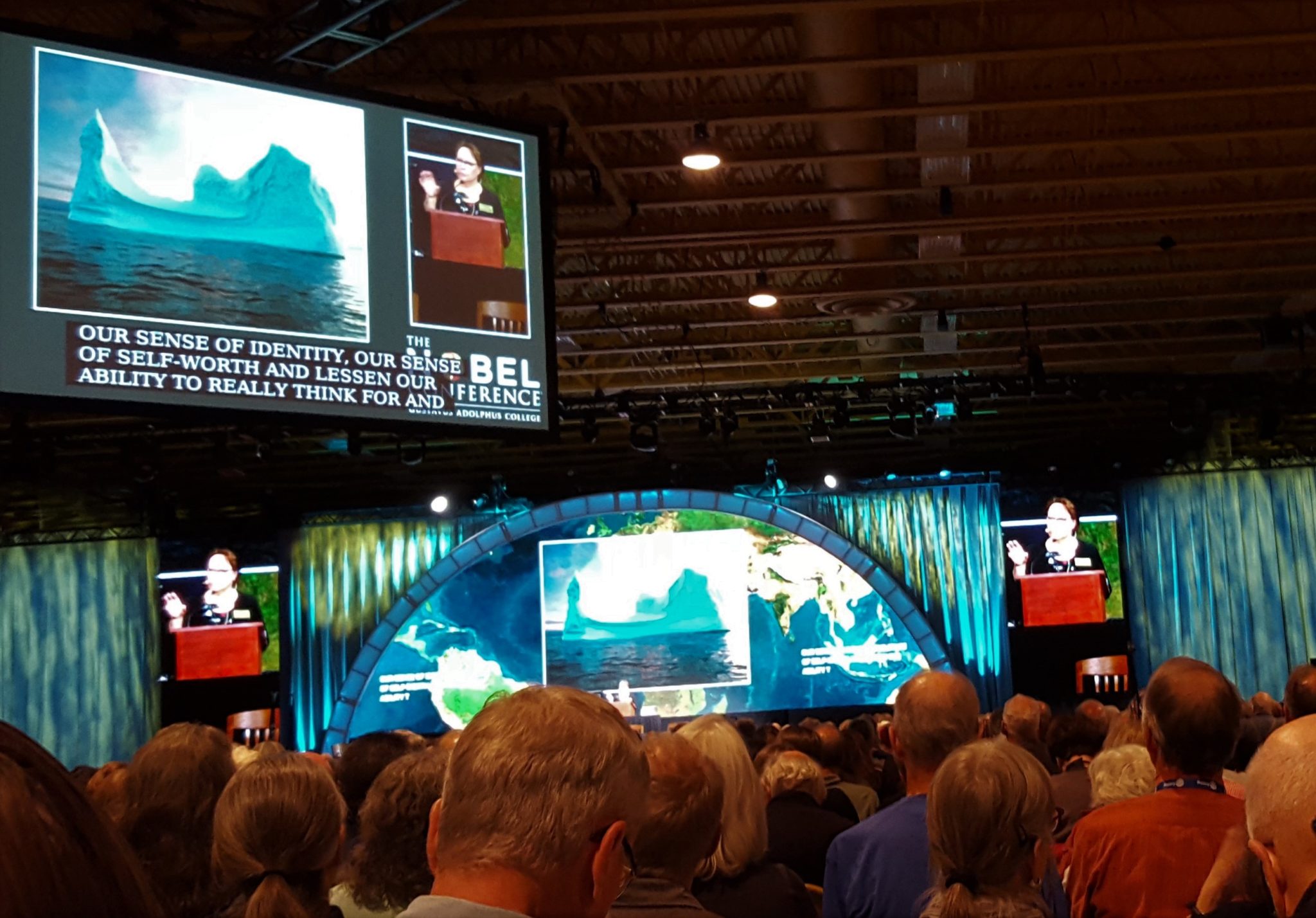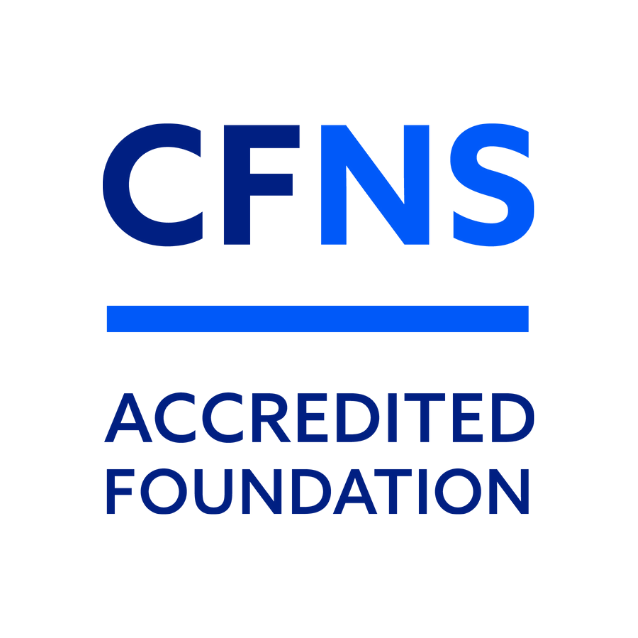This generation can tame climate change
“Attending the Nobel Conference this year was an eye-opening experience. The conference inspired me to want to change my community, and tell what I learned about the global climate crisis.”
— Vivian Coenen, Appleton West student
Nobel 55 deepened my understanding of climate change and its proposed solutions, but it exposed the complex relationship with colonialism, the military and human rights, among others.”
— Manish Raj, Appleton West student
By David Horst, Donor Services & Environmental Grants Manager
As dire as the picture of climate change is painted, international experts told the young attendees at a conference attended by Appleton and Shawano youth that it’s not too late to fix it before they reach their 50s.
David Keith, Harvard professor of applied physics and lead author of the Nobel Prize-winning Intergovernmental Panel on Climate Change, said the leading nations of Earth can reverse the threat of carbon dioxide buildup in the atmosphere by 2050, but it will require action now and cost 1% to 2% of their gross domestic product.

He told the mix of more than 2,000 students, teachers and concerned community members attending the 2019 Nobel Conference at Gustavus Adolphus College in St. Peter, Minn., the best way to help achieve a carbon-neutral world is to go beyond being a green consumer and demand that their politicians address the problem or be replaced by someone who will.
The crowd included two busloads from the Appleton and Shawano areas. Fifty-nine high school and college students and 10 of their teachers were able to attend thanks to the generosity of Dr. John and Sally Mielke through the Mielke Family Foundation and coordination by the Appleton Education Foundation. Both are associated with the Community Foundation for the Fox Valley Region. Twenty-three community leaders joined them for the conference, Sept. 24 and 25.
Diana Liverman, Regents Professor of Geography and Development at the University of Arizona, agreed with the timetable, but made it clear it is a complicated issue. Advances that have cut the planet’s poverty rate in half since 1990, reduced hunger and reduced population growth will not be able to continue at that rate, she said. People who rise out of poverty seek the same energy-consuming conveniences everyone else has.
Of particular notice for the Dairy State, several speakers said the CO2 reductions will be more achievable if people stop consuming meat and dairy because of the high environmental demands of raising large animals like cows.

Sheila Mott-Clothier says there needs to be a face of climate change.
Despite the stellar scientific credentials of the six other presenters, the spotlight clearly was taken by Sheila Watt-Clothier, an Inuit political activist from the Arctic reaches of Canada. She spoke of her people’s loss of their traditional hunting techniques and cultural practices as the icecap melts due to fossil fuel consumption by people half a hemisphere away.
“The Inuit culture thrives on the cold,” she said. Their health, safety and the education of their young through hunting are all threatened. “The ice is our university.”
She told the scientists they need to put the faces of people like her fellow Inuit on this issue and move from building an already convincing rational argument to touching people’s emotions.
Richard Alley, professor of geosciences at Pennsylvania State University, said the effects of extracting carbon deposits that built up over millennia and releasing all of that carbon into the atmosphere within decades is obvious.
“The models did indeed tell us this was going to happen 30 years ago,” Alley said. “We can’t afford not to deal with it.”



Leave a Comment